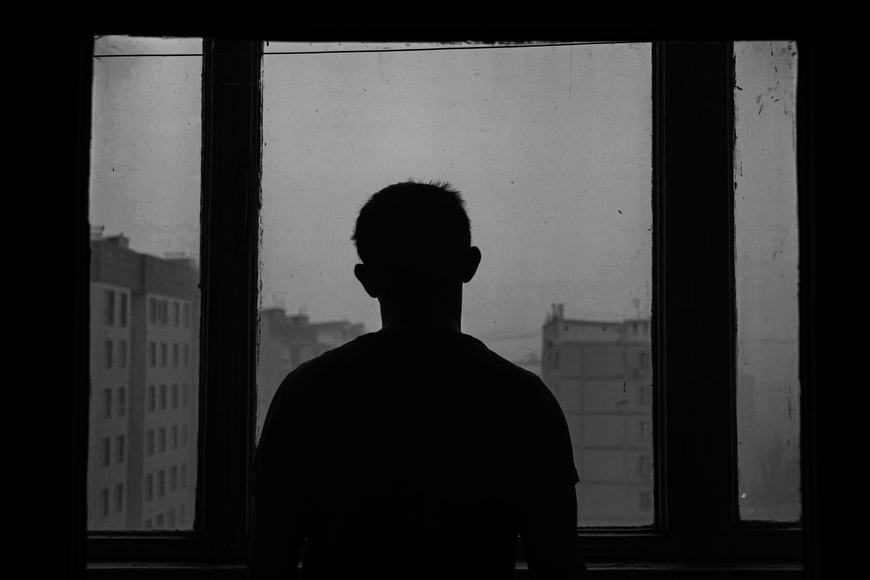Most seniors suffer from depression, and the sad thing is that many people do not know how to recognize the signs of aging and depression in their loved ones.
Further, depression among seniors often goes undiagnosed, which is another problem in itself. To help your loved ones get the help they need as soon as they need it.
You need to be able to recognize the signs of depression. The following article explores the different symptoms that manifest stronger in people as they age. It also explains the condition, with emphasis on the relation between aging and depression.
What Is Depression?
A serious mental health issue that affects people regardless of gender, age, race, and ethnicity. They experience feelings of sadness, emptiness, irritability, and hopelessness. They are also prone to eating less or more than usual – having aches, pain, and headaches.
People with depression experience trouble concentrating, making decisions, and remembering details. They also think about suicide and hurting themselves.
Causes of depression include:
- Family history of the condition
- Genetics, psychological, or environmental factors
- Use of substances such as marijuana and alcohol
- Life stressors – work or home-related
- Upsetting life events such as divorce, bereavement, redundancy or worries
- Side effects due to other medications
What Is Depression in Older People?
Depression is a serious issue where people lose interest in activities that used to be fun for them. It also includes changes in their weight and appetite and difficulty sleeping or overdoing it.
Older adults are at a higher risk of developing depression due to vulnerability and changes in their body. That’s one way to explain the relation between aging and depression.
The hormonal cycles and the brain chemistry – to put it simply – are different in a younger person. Not to make an ageist remark, but that’s how aging affects us.
Unlike younger people, older adults are less likely to talk about their symptoms, such as feeling down, being uninterested in activities, and losing interest in being around people. They may even feel on the fence about their symptoms and illness.
The best way to help them is by initiating conversation and helping them understand the ailment. In addition, the physical symptoms they’re experiencing are a good place to start, as it will help them acknowledge the change.
Older adults have other health conditions and experiences that may make them even more prone to depression. For instance, some older adults may develop symptoms of depression after they retire.
This is one of the common reasons for depression in older adults, which causes them to have stronger bouts of depressive episodes. Some of the common symptoms in them include:
- Fatigue
- Sleep disturbance
- Loss of interest in living
- Hopelessness about the future and
- Lack of interest in activities
The following sections illustrate the different symptoms and how aging affects their manifestation.
Symptoms At Length – A Closer Look At The Major Symptoms
The following section explores the major symptoms that manifest as proof of the relation between aging and depression. Let’s have a deeper understanding:
Insomnia and Irritability

Depression can cause insomnia in people of all ages, but it affects seniors more than younger people. Seniors who sleep for too few hours, sleep late or wake up earlier than usual might have depression. This is much more likely to be the case if the insomnia is chronic.
Insomnia combined with depression can lead to irritability. Although many seniors are naturally irritable, irritability that is out of character could be an indication of a deeper problem such as depression.
Insomnia is also associated with fatigue. However, seniors with depression also often feel tired even after they have had a full night’s sleep.
Social Withdrawal
Engaged and active seniors do not often withdraw from their friends and family. If a loved one starts getting withdrawn, it is time to start exploring whether they may be depressed.
Social withdrawal is often associated with anxiety, with a loved one feeling anxious around familiar people and situations, leading to the withdrawal. They are then unable to calm themselves down leading to a cycle of anxiety and withdrawal.
Related Reads: Effects of Anxiety on body
Appetite Changes
It is quite common for people suffering from depression to skip meals due to a lack of appetite. The loss of appetite might also be caused by a loss of the will to eat. If you notice weight loss in your loved ones, check to see if their appetite is okay and whether they are eating as they ought to.
How You Can Help Someone with Aging and Depression?

When you notice any of the signs of depression in your loved one, it is important to encourage them to seek the appropriate treatment. Depression does not simply go away and ignoring it only makes things worse. Depression can also get worse in loved ones who live alone so it is important to interact and communicate with a loved one regularly. In addition to helping ease their depression, these interactions can also help you notice if things start getting worse.
Another thing you can do is encourage your loved one to consider assisted living communities. In assisted living facilities, signs of depression cannot go unnoticed because there are experienced caregivers whose only job is to keep an eye on your loved one’s well-being. Brentwood assisted living facilities like McKnight Place have experienced caregivers standing by to alert families and physicians if they notice any signs of depression. The neighbors and residents in these communities can also help alert caregivers if they notice signs of depression in one of the residents.
Sadly, depression is very common in older loved ones. To help get your loved ones the help they need, it is important to learn to recognize the signs of depression.
Wrapping It Up!
That’s how aging and depression have a relationship that sometimes cannot be prevented from existing. It is also one condition that does not allow older adults to live out their retirement easily.
The article takes a deep dive into the realm of depression and how it can manifest in older adults. The signs of depression may not have a stark difference between age groups, but their manifestation and effect on the individual is undeniable.
Read Also:




























